Why Halo: The Master Chief Collection Is Important

It's an interesting time to be a Halo fan.
Over the past few years, the franchise has been in an incredibly evident state of transition. Following 2010's Halo: Reach, Microsoft's in-house studio 343 Industries assumed the mantle of responsibility for Xbox's most important exclusive IP, taking the franchise in a new direction on multiple levels. Narratively, the series moved on from the wartime saga that had defined every title released since the series' conception, 343 instead choosing to move the franchise forward into the tumultuous period following the Human-Covenant War. The Expanded Universe... expanded, largely in two directions. One trilogy of novels written by Karen Traviss chronicled both the paranoid months and years following the events of Halo 3 and the political strife that occurred during that period. Another trilogy by Greg Bear took the series in a direction more akin to fantasy, finally shedding light on the Forerunners, the precursor race that existed millions of years before the start of the series that created the Halo rings and, in doing so, set a sequence of events in motion that would eventually culminate in the events of the original trilogy.
343 then produced a webseries, Halo 4: Forward Unto Dawn, that chronicled the early life of Thomas Lasky, a core character in the events of Halo 4. And then, finally, in 2012, all of the EU build-up culminated in the release of 343's first original Halo game - Halo 4, which, after five years, reintroduced the Master Chief as the series' main protagonist and officially kicked off the "Reclaimer Saga", 343's official term for the next grand Halo story arc. The game also arguably delivered Halo's best campaign in years, finally granting the Master Chief character development previously only evidenced in the pages of the EU and in the process, lending his relationship with Cortana a newfound pathos.
On the multiplayer end of things, however, Halo 4 could have been categorized as a failure. The increased emphasis on loadouts, character customization, and other Call Of Duty-esque gameplay mechanics disappointed die-hard fans of the franchise, who missed the even playing field and arena combat afforded by the game's predecessors. The online player-base dropped dramatically, and Halo 4's multiplayer community quickly became a fraction of its predecessors'.
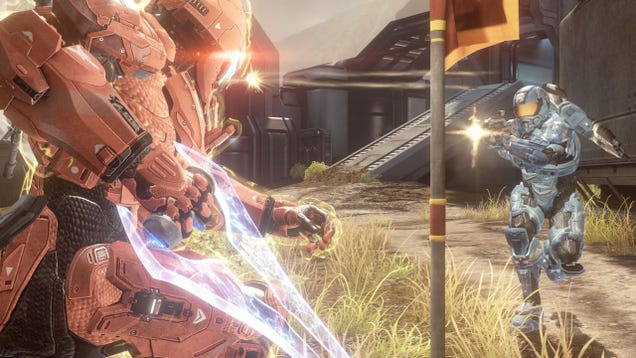
Now, after a smaller release on mobile platforms (Halo: Spartan Assault) and more EU expansion in the form of an ongoing comic series (Halo: Escalation), 343 Industries now finds itself on the verge of a huge franchise turning point once again. Next year, 343 will launch Halo 5: Guardians, the next chapter in the Reclaimer Saga and the first main series release on Xbox One. Before that, however, 343 will preface this next chapter with a tribute to the series so far - Halo: The Master Chief Collection, a compilation of Halos 1-4 all upgraded to run at 1080p resolution and 60 FPS. Set to launch on November 11th, the MCC will also feature Halo 2: Anniversary, a complete remastering of Halo 2's campaign featuring re-done graphics and new cinematics produced by Blur studios. In addition, Halo: Nightfall, a new digital series akin to Forward Unto Dawn, will also be included in the MCC. Nightfall will introduce new character Agent Jameson Locke prior to his debut as Halo 5's secondary protagonist next Fall. The MCC will also feature access to Halo 5's multiplayer beta, beginning in December, and finally - and most pleasingly to long-time fans - all four games' multiplayer suites in their original forms, running at 1080p and 60 FPS on Xbox One. The Master Chief Collection is a love letter to the fans, a tribute to everything the series has accomplished so far.
However, the Master Chief Collection, upon closer examination, is more than just a compilation. It's a signpost, signaling a turning point in the franchise's history. Arguably, it's the most important release 343 will have overseen to date, and there are multiple reasons why, as it's going to foreshadow the franchise's future on multiple levels. [SPOILERS FOR HALO 4 - AND SPECULATION ON HALO'S FUTURE - FOLLOW]
Over the past few years, the franchise has been in an incredibly evident state of transition. Following 2010's Halo: Reach, Microsoft's in-house studio 343 Industries assumed the mantle of responsibility for Xbox's most important exclusive IP, taking the franchise in a new direction on multiple levels. Narratively, the series moved on from the wartime saga that had defined every title released since the series' conception, 343 instead choosing to move the franchise forward into the tumultuous period following the Human-Covenant War. The Expanded Universe... expanded, largely in two directions. One trilogy of novels written by Karen Traviss chronicled both the paranoid months and years following the events of Halo 3 and the political strife that occurred during that period. Another trilogy by Greg Bear took the series in a direction more akin to fantasy, finally shedding light on the Forerunners, the precursor race that existed millions of years before the start of the series that created the Halo rings and, in doing so, set a sequence of events in motion that would eventually culminate in the events of the original trilogy.
343 then produced a webseries, Halo 4: Forward Unto Dawn, that chronicled the early life of Thomas Lasky, a core character in the events of Halo 4. And then, finally, in 2012, all of the EU build-up culminated in the release of 343's first original Halo game - Halo 4, which, after five years, reintroduced the Master Chief as the series' main protagonist and officially kicked off the "Reclaimer Saga", 343's official term for the next grand Halo story arc. The game also arguably delivered Halo's best campaign in years, finally granting the Master Chief character development previously only evidenced in the pages of the EU and in the process, lending his relationship with Cortana a newfound pathos.
On the multiplayer end of things, however, Halo 4 could have been categorized as a failure. The increased emphasis on loadouts, character customization, and other Call Of Duty-esque gameplay mechanics disappointed die-hard fans of the franchise, who missed the even playing field and arena combat afforded by the game's predecessors. The online player-base dropped dramatically, and Halo 4's multiplayer community quickly became a fraction of its predecessors'.

Now, after a smaller release on mobile platforms (Halo: Spartan Assault) and more EU expansion in the form of an ongoing comic series (Halo: Escalation), 343 Industries now finds itself on the verge of a huge franchise turning point once again. Next year, 343 will launch Halo 5: Guardians, the next chapter in the Reclaimer Saga and the first main series release on Xbox One. Before that, however, 343 will preface this next chapter with a tribute to the series so far - Halo: The Master Chief Collection, a compilation of Halos 1-4 all upgraded to run at 1080p resolution and 60 FPS. Set to launch on November 11th, the MCC will also feature Halo 2: Anniversary, a complete remastering of Halo 2's campaign featuring re-done graphics and new cinematics produced by Blur studios. In addition, Halo: Nightfall, a new digital series akin to Forward Unto Dawn, will also be included in the MCC. Nightfall will introduce new character Agent Jameson Locke prior to his debut as Halo 5's secondary protagonist next Fall. The MCC will also feature access to Halo 5's multiplayer beta, beginning in December, and finally - and most pleasingly to long-time fans - all four games' multiplayer suites in their original forms, running at 1080p and 60 FPS on Xbox One. The Master Chief Collection is a love letter to the fans, a tribute to everything the series has accomplished so far.
However, the Master Chief Collection, upon closer examination, is more than just a compilation. It's a signpost, signaling a turning point in the franchise's history. Arguably, it's the most important release 343 will have overseen to date, and there are multiple reasons why, as it's going to foreshadow the franchise's future on multiple levels. [SPOILERS FOR HALO 4 - AND SPECULATION ON HALO'S FUTURE - FOLLOW]
The Narrative
Halo 4 left the Halo universe in fascinating, incredibly unfamiliar territory. After eleven years of games had been built around the idea that the Forerunners had been a long-extinct race whose technological advancements paved the way for our own flourishing as a species, Halo 4 shattered all preconceived notions by introducing a living Forerunner - The Didact - as the main antagonist. Master Chief's struggle to prevent the Didact from annihilating the human race forever altered the state of the series' mythology - Master Chief, who, for the first three games in the series, had simply been a genetically enhanced super-soldier doing his duty to prevent the human race, was recast as a mythic hero whose existence was less a matter of fortuitousness, and more one of destiny. The moment that reinforced this point was Master Chief's eventual confrontation with the Librarian - The Didact's wife - who revealed that she had planted the seeds leading to his inevitable creation in humanity's genetic code millions of years ago. At the conclusion of this conversation, The Librarian revealed her intentions to help the Master Chief defeat her husband, giving him the tools to do so by "accelerating his evolution", altering him on a genetic level to the point where he would be able to survive the effects of the Composer, the Didact's weapon of mass destruction designed to wipe out humanity as we know it.
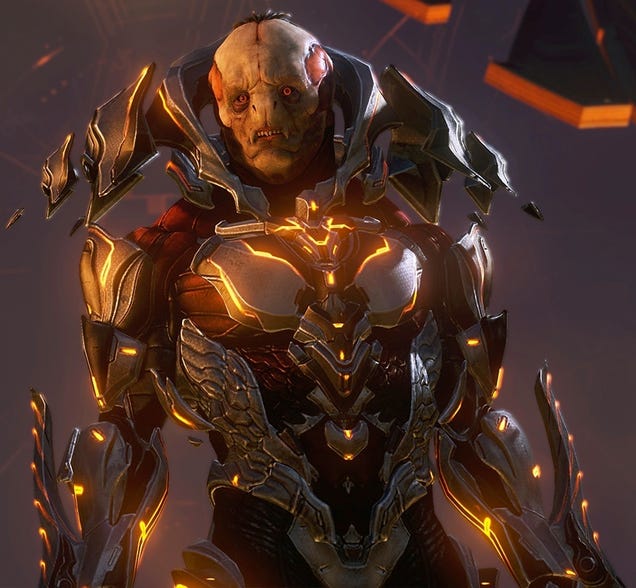
This "acceleration" worked exactly as the Librarian intended, allowing the Master Chief to later survive when the Composer was fired near Halo Installation 03. The Master Chief then eventually pursued the Didact to Earth, where, after an extended confrontation aboard his ship, the Didact (supposedly) met his end and the Composer was destroyed in a nuclear blast. At the conclusion of Halo 4, several questions remained unanswered:
Is The Didact truly dead? (All we saw was the Chief sticking a grenade to the Didact's chest and then tossing him into a slipspace event - but thanks to the lack of a body, as well as an ambiguous post-credits narration, it's safe to assume that we haven't seen the last of the Forerunner. )
What did the Librarian do to the Chief? (Cortana expresses shock at whatever the Librarian did to the Chief's genetics that made him immune to the Composer, but we're never truly given any information on why or exactly what about the Chief has changed.)
Are the Forerunners still a threat? (The aforementioned post-credits narration featured the Didact advocating war against humans to... someone. Are there more Forerunners still alive? Do they pose a threat to humanity? Halo 4 left things unclear.)
However, the most fascinating question posed at the end of Halo 4 had nothing to do with the series' mythology, but rather its main character. The Chief's victory against the Didact came at a heavy cost when, rather than suffer a slow death at the hands of rampancy (the AI equivalent of mental illness), Cortana sacrificed her life to help him defeat the Didact and save him from the nuclear blast. After eleven years and four games, Halo 4 concluded with the most pyrrhic victory imaginable: The Chief had won, but his closest (and, at the end of the day, probably only) friend had died in the process. The relationship that had defined the first four games in the series was severed, and we left the Chief pondering his place in the world - and whether or not he deserved to be called human, Cortana's death finally having broken his strong and silent demeanor. The biggest question left at the end of Halo 4 was not related to the Forerunner mythos, but rather where the Chief would go from here - what emotional state has Cortana's death left him in, and how will it impact him over the course of the Reclaimer Saga?
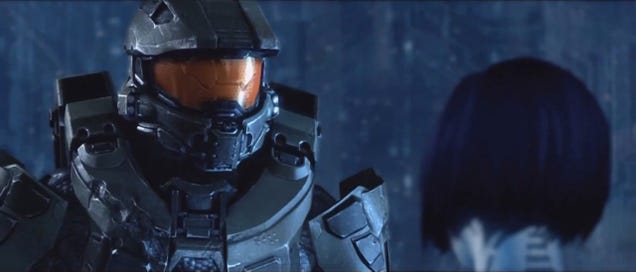
Halo 5: Guardians will likely tackle most of these questions when it launches next year, but not before initial seeds are planted in the Master Chief Collection. The MCC will be the debut appearance of Halo 5's secondary protagonist, Agent Locke, whose origin story will be told in Halo: Nightfall. In addition, new cinematics - a prologue and an epilogue - added to Halo 2: Anniversary will shed light on Locke's role in Halo 5, and likely set up his presence in the coming game. All we know about Locke at the moment is that, when Halo 5 begins, he is tasked with hunting down the Master Chief by the Office of Naval Intelligence, implying that the Chief goes missing at some point between Halo 4 and Halo 5. Whether Locke's mission is simply to bring the Chief home or eliminate him for some unknown reason, the MCC will be the first step in enlightening us towards his motives. In addition, the MCC will also feature the return of Halo 2's secondary protagonist and a long-time fan-favorite character, the Arbiter, who will be featured in Halo 2: Anniversary's new terminal content, and seems to have some role in aiding Locke's manhunt. The Arbiter's role post-Halo 3 has largely been to rule the Covenant following the end of the war, so it will be interesting to see if (and how) he is brought back into the conflict in Halo 5.
Between the debut of Locke, the return of the Arbiter, and the unknown narrative justification for the existence of the MCC, the Master Chief Collection is poised to be both a reminder of where the Chief's been, as well as a harbinger of things to come - which, for any die-hard Halo fan, makes it a can't-miss title just for the new content alone. [SPOILERS FOR HALO 4 OVER]
The Multiplayer
IGN editor Ryan McCaffrey's theory about the MCC's existence and what it means for Halo's competitive multiplayer scene makes perfect sense. Halo's multiplayer needs a return to basics, and what better way to gauge what made the franchise great to begin with than by including the series' most famous multiplayer suites all in one package? 343 would be foolish not to take the opportunity to see what fans love about the previous games and what they might not necessarily enjoy, and the MCC is the perfect way to do that. Players will have over a hundred multiplayer maps at their disposable with unlimited customization options, and this can be used to shape the future of Halo - as well as the franchise's return to glory when it comes to competitive multiplayer. Add to this the six remade maps constructed exclusively for the MCC running on an Xbox One engine, and the MCC could also be considered a way to glimpse what the future of the series will be come the arrival of Halo 5.
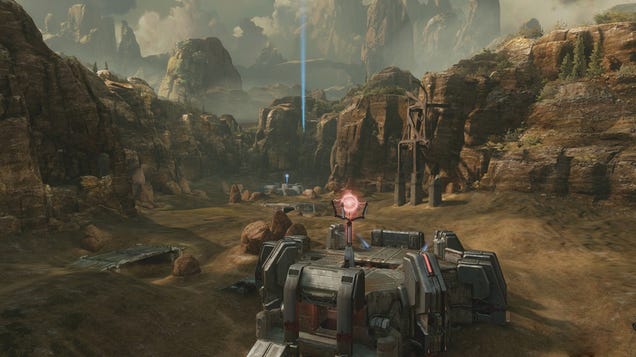
In addition, the MCC will also contain access to Halo 5's multiplayer beta when it launches in December, which will give the first glimpse at 343's vision for the future of the franchise. Given that this beta will occur almost a year before the game actually launches, odds are that the results of the test will give 343 ample time to make necessary modifications and give gamers the Halo experience that they want in Fall 2015.
The Larger Implications
343 took on a huge task when they were formed to take the reins of the franchise from Bungie back in 2009. Halo 4 was their first huge project, and the one that would confirm whether or not they had what it took to sustain the series for the foreseeable future - and they largely pulled it off, save for the multiplayer gripes. It can almost be reasoned that Halo 4 is 343's Halo: Combat Evolved - a compelling campaign built on mystery along with a multiplayer suite that's a step away from perfection. Following this reasoning, Halo 5 could be 343's Halo 2 - a game that perfects the company's formula for a successful Halo game, in campaign and multiplayer both. (If there's one way Halo 5 should strive NOT to be like Halo 2, it's simple - as long as 343 doesn't end the game midway through telling a complete story arc, they should be fine.) 343's been accused of "ruining Halo" in some internet circles. This is unequivocally an exaggeration, but one that 343 needs to silence, and the MCC can hopefully buy them just enough goodwill with die-hard fans of Bungie's classic trilogy to help pave the way for a spectacular Halo 5.
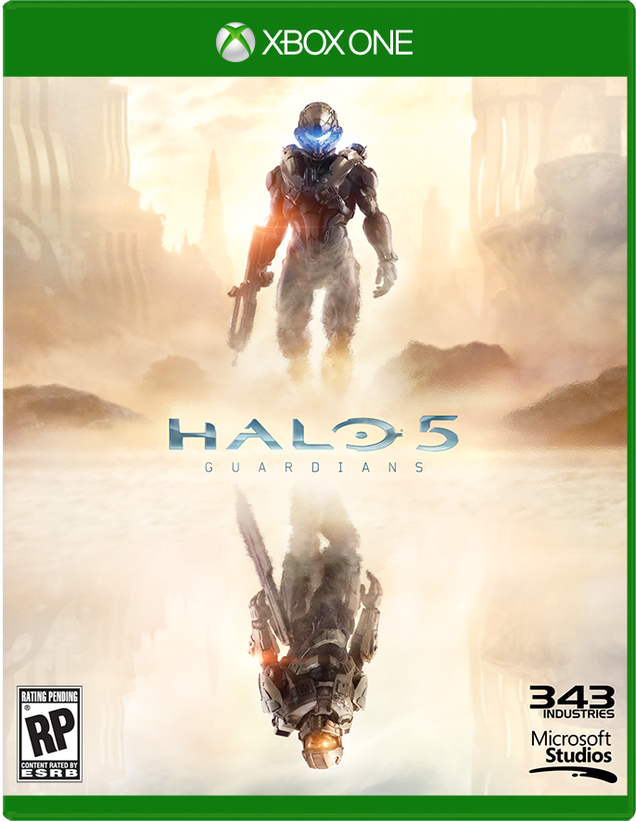
Lastly, when considering the impact of Halo as a franchise on both its fans and its developer, one must consider the impact it has on the company that owns it: Microsoft. Microsoft's had an interesting launch year with the Xbox One, boasting impressive sales that appear more than slightly diminished when compared with the PlayStation 4. Initial marketing and back-tracking on controversial policies crippled them coming out of the gate, and they've been struggling to catch up to Sony ever since. However, Microsoft's arguably had the better launch year in terms of exclusive titles (Ryse, Forzas Motorsport and Horizon 2, the forthcoming hopefully great Sunset Overdrive). None of those titles, however, have as much cultural cachet among gamers and the general public as Halo. The MCC could be Microsoft's ace in the hole, a way to boost console sales just in time for the holiday marketing blitz.
Conclusion
It's an exciting time to be a Halo fan.
Halo: The Master Chief Collection is poised to take fans back to the glory days of the original trilogy while setting up a future that looks incredibly promising. Between the narrative implications of the MCC's new content as well as the impact it may have on the future of Halo's competitive multiplayer circuit, it's likely to become known as an undoubtedly important chapter in the franchise's already extensive history. 343 Industries has an opportunity on their hands with this compilation, and provided that they seize it with the passion that they've already exhibited towards the rest of the Halo universe, they'll have a chance to leave their defining mark on the franchise - one that will shape its trajectory for the next decade and beyond.
Original Article at www.kotaku.com
No comments:
Post a Comment